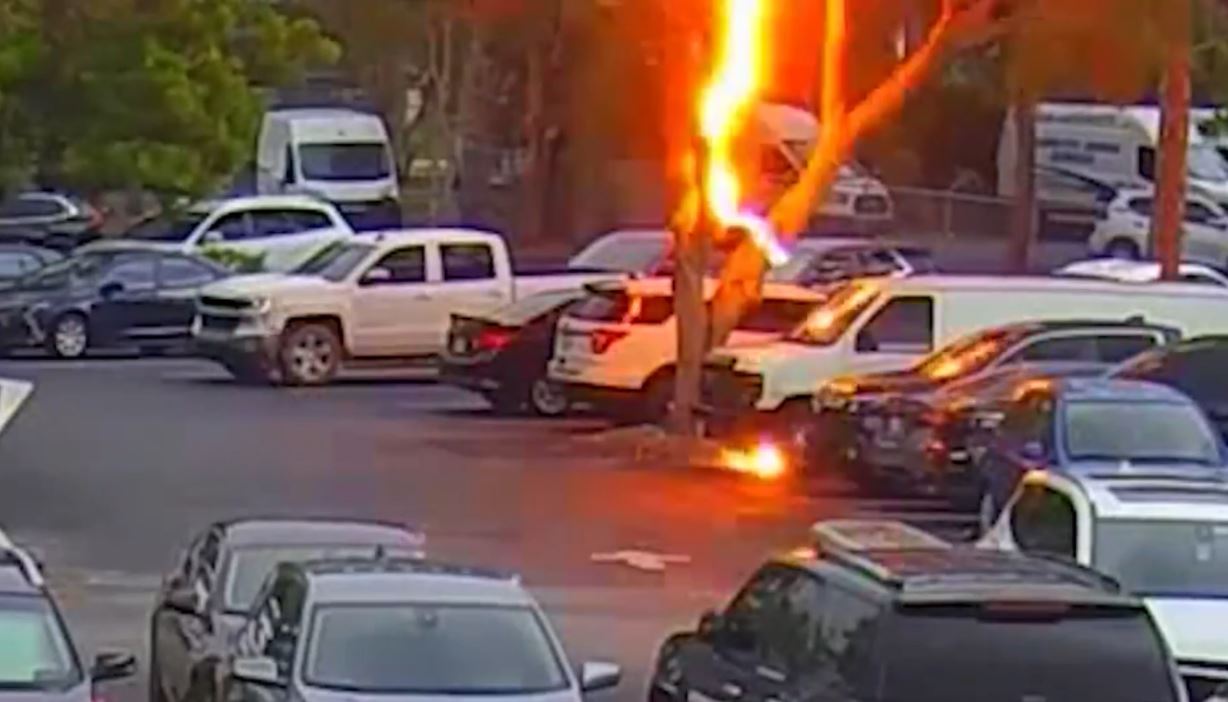Lightning bolt strikes tree near parked car at Florida sheriff's office: WATCH

Lightning strikes near car in Florida
A lightning strike was captured on camera by the Lee County Sheriff's Office in their parking lot. A bolt of lightning struck a tree.
LEE COUNTY, Fla. - Lightning struck a tree at a Florida sheriff's office parking lot – and the whole thing was caught on camera.
The Lee County Sheriff's Office shared a video of a bolt of lightning striking a tree in its back parking lot on Thursday. The video – posted on Facebook to the tune of AC/DC's "Thunderstruck" – shows a bright flash of orange near a tree as a car drives by in the parking lot.
One vehicle had mechanical damage, but no injuries were reported, the sheriff's office said.
The Lee County Sheriff's Office is located on 6 Mile Cypress Parkway in Fort Myers.

Photo: Lee County Sheriffs Office
Lightning safety
Here are a few lightning safety tips from the National Hurricane Center:
- Avoid contact with corded phones.
- Avoid contact with electrical equipment or cords. If you plan to unplug any electrical equipment, do so before the storm arrives.
- Avoid contact with plumbing. When thunderstorms are occurring, do not take a shower or bath, wash dishes, or do the laundry. Wait until after the storm.
- Move away from windows and doors. Do not stay on the porch.
MORE: Lightning strike, rainbow and sunbeam all captured at once in stunning Florida photo
Debunking common lightning myths
NHC is debunking common myths surrounding lightning:
- Myth: Cars are safe because the rubber tires insulate them from the ground.
- Truth: Rubber tires provide no protection from lightning. Cars are safe because of their metal shell and steel frame. Convertibles are not safe.
- Myth: Lightning-strike victims are electrified and should not be touched.
- Truth: Lightning-strike victims carry no residual electrical charge. It is perfectly safe to touch a lightning victim to give them first aid.
- Myth: If it is not raining, then there is no danger from lightning.
- Truth: Lightning often strikes outside of the rain area to as much as 10 miles (even greater distances in exceptional situations).
- Myth: Heat lightning occurs after very hot summer days and poses no hazard.
- Truth: Heat lightning is a term used to describe lightning from a thunderstorm too far away for the thunder to be heard. The lightning hazard increases as you move toward the storm and eventually the thunder will also be heard.

